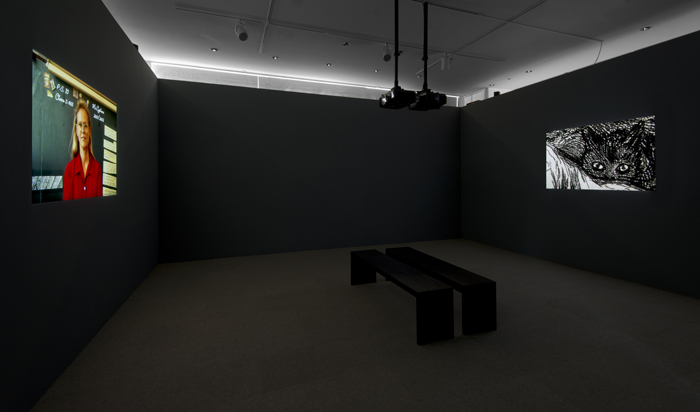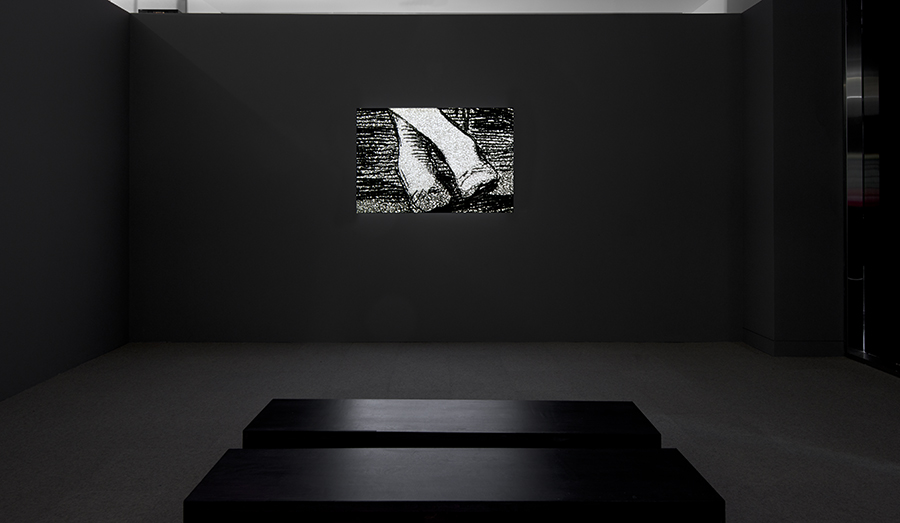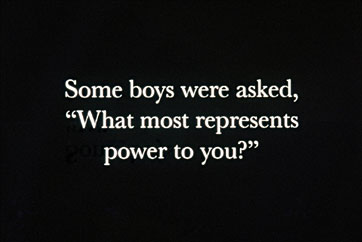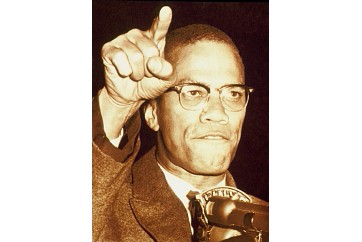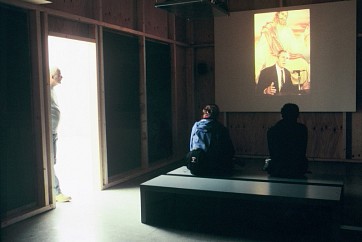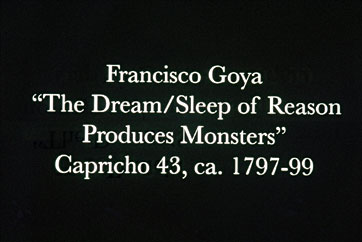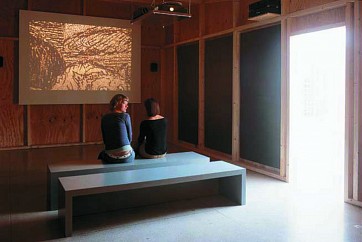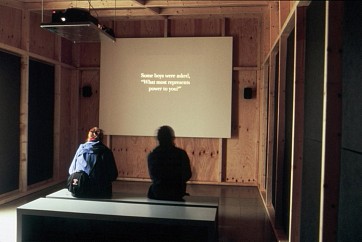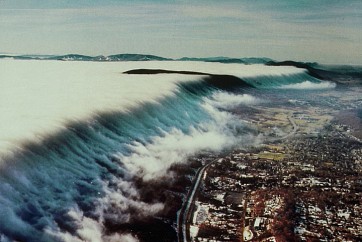|
|
2003/2004
Transcript Excerpts
The following are partial transcripts of three of the 4 audio presentations from the project. In the audio, the questions have been removed, supplanted here by spaces. Longer transcriptions can be found in inadequate...Like...Power, (Secession, Vienna, and Verlag der Buchhandlung Walther Konig, Cologne, 2004. English and German). (See Publications)
Dialogue 1 - Excerpts
June 2, 2004
He: Well, the first concept that comes to mind is that having power is the ability to project your own agenda onto other people and have them assist you in accomplishing your agenda. So it's a kind of control.
He: He has power to the extent that everyone truly believes he's powerful. What I've also realized is that power is not strictly measurable, like weight would be measured, or even, you know, riches, or finances. Sometimes you can have a lot more power than riches. It depends on how well you're able to use it. But what I find interesting about power is how it can also be desperate. Ultimately, from my experience, all power is deployed to escape mortality.
He: Absolutely unwilling to share the fate of the little people. The powerful want to live longer, to live better, to...believe that you can leave behind a legacy that you can control before you die, so therefore you can control it from the grave. It's not too different from the pharaohs. The powerful don't want to settle for just dying and decaying, like every pauper and every middle-class person.
Dialogue 2 - Excerpts
June 10, 2004
He: I've always been interested in the very wealthy, for some reason, because I was born into a very ordinary family. My father did manual labor, and I...we lived surrounded by beautiful old houses in a decaying part of a city. So, I would learn about their history and fantasize about living in the big houses. All my life I've been drawn to wealthier people. Like, I love the stories about Akbar, who was one of the Moghul emperors. He was completely illiterate, but he insisted that his library of 40, 000 books be brought around behind him in the caravan and that he be read to every day. He wrote the first autobiography by having his scribe put it down, the Baburnama.
He: He has tremendous determination and doggedness. When he starts something he finishes it. He doesn't do that many things and he stays very focused. I couldn't drag him off to see something he wasn't that interested in. So he doesn't spread his time and energies around, he does a few things in life and he really does them perfectly.
He: Sure, because people know that if he's doing something, he's really going to do it. He doesn't promise things he doesn't deliver on. His wealth isn't tremendous by New York standards, he's got only 20-30 million. He doesn't have a jet, he doesn't have an amazingly glamorous apartment. I thought of this recently: if I won 15 million dollars in the lottery I'd feel poor, because I'd be at a level of wealth where I couldn't buy everything I wanted, I couldn't even buy the apartment I really want because Demi Moore would pay three million dollars more than I could, because she makes $10 million a movie.
Dialogue 3 - Excerpts
June 23, 2004
He: Um, I don't really think about power. I've always been a staffer and a staffer's job is to make sure that the person for whom you're working is covered. "Cover" is a big word in politics; politicians are always looking for cover. A lot of times an interest group, or somebody, is gonna ask a politician to do something. You have to try to figure out a way to satisfy everybody. So you're looking for "cover", you're looking for a way to way to satisfy their needs and not offend your friends.
He: Well, somebody who's good has the ability to take care of people's needs while at the same time perpetuating their desires for power. Some of them are so good that they will actually bring their enemies close to them. You know that saying? You bring your enemies close to you so they can't stab you in the back. And these days it basically comes down to being able to raise money. Unfortunately, that's the poison now in the political world. A lot of people are now raising money just to be able to have access to officeholders. People are being turned off by running for politics, because they just don't want their private lives sullied about. So, instead, you raise money for a politician, you get access to that person, and maybe something will flow back to you. And some people just feel powerful contributing to a campaign.
He: Yeah. Because proximity is power in politics. That's why there's always a fight over the location of the offices in the White House.
He: I think the thing about actors who become successful politicians is that the art of politics is an act. You're constantly trying to make things sound better than they are, or worse than they are for your opponent. It's all an act. That's why Reagan was so good. For people who are inside the business, if we look at some of these people and say "wow, what a good actor, what a good politician," we don't mean they're good policy-makers, but you can see that their act is good.
Back
© 2026 Silvia Kolbowski
